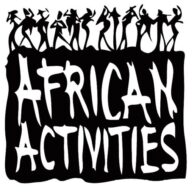We believe in placing culture firmly within its context. As we plan for Black History month 2022 we thought we might try that with our history too.
The truth is much Black History taught within schools just isn’t. Slavery, apartheid, the civil rights movement – none of these could have existed if it was only black people in this narrative. Framing this as Black History takes out one of history’s most important elements. It’s not about blame or shame. Simply the truth. White people were there too.
If we do talk on slavery in schools our focus is likely to be on the corporations and insitutions that were forged in its fire, borne to success on black bodies. We might talk to you about streets and buildings in your town named after slave traders. We might talk about who these slave traders were.
But the truth is we often start elsewhere in some of the more hidden stories of our History. We like to share our precolonial history, the history of Blackness in Britian and the history of our rebellion, we feel these areas of our rich and diverse history are far closer to ‘Black History’ than anything else.
Africa is often seen as a continent without writing; and indeed oral histories are important. But equally African hieroglyphs and symbols predate modern written texts, writing began with a hashtag in a south African cave 73,000 years ago. The oldest university in the world is Africa’s University of al-Qarawinyyin, founded in 859 and located in Fez, Morocco. It is also home to the world’s oldest library. Why not explore some of these themes with an Adinkra printing workshop? As well as running these for you we have free resources online to help get you started without us.
What of the Black history of the UK? For example do you know of Septimius Severus the Roman Emperor who traveled the length of the UK? He was a black man leading battalions from across Europe and North Africa, maybe he travelled or stayed near your school?
Have you heard of the Cheddar man, Britain’s oldest complete skeleton? What colour do you think he was?
Why not see what Black stories there are in your local history?
The Mary Rose for example had crew members from England, across the Mediterranean and North Africa.
The only black Passenger to die on the Titanic was a middle class passenger and a professional engineer.
We are there, as we have always been, and as always the truth might surprise you. If it does the biggest lesson might be found in asking “why is this surprising, why did I not know this?”
Colonialism and slavery were met with fierce resistance all over the world. Have you heard of Nigeria’s woman’s war? In 1861 Britain annexed Lagos and slowly began to implement and brutally enforce a wave of new legislation. Upon arrival in Nigeria governors, traders and staff assumed they would be working with the men. They set up governance accordingly. By 1929 the women of Nigeria had truly had enough. Women from six different ethnic groups joined together that November and began the ‘woman’s war’. It was a strategically executed revolt organised by women to redress social, political and economic grievances. Within just three months the entire system of governance was rewritten to ensure it gave women some of the power back. Is it surprising to discover that women had more political power in precolonial Nigeria than women in the UK?
We are always grateful to see the efforts schools go to in order to explore and reflect during Black History Month, and indeed throughout the year. We know how hard it can be to explore some of these topics and often little time is given to do it well.
But please if we are going to focus on the history of the relationship between races, let’s call it that. Let us remember that White people were also there. There is healing only in the truth.
If you truly want to focus on Black History there is much to explore. Why not give us a call? We would be delighted.

0 Comments